|
Dr. Karen Rane has been the Director of the University of Maryland’s Plant Diagnostic Lab (PDL) since 2007. After 17 years of service and a WOW # of plant samples processed, she has decided to turn in the towel and retire this semester. We thank Karen for lending her expertise to our Departments, the University and broader community and wish her all the best in retirement. For more on Karen and her service check out the write up from her National Plant Diagnostic Network (NPDN) - Lifetime Achievement Award and recent(ish) graduate student blog about her work, "Catching bugs isn’t just for entomologists: Inside the University of Maryland’s plant diagnostic lab"
This semester the Department was saddened by the loss of Professors Emeriti Don Messersmith and Charlie Mitter. They both left an indelible mark on students, colleagues and the field of Entomology. Here we take a brief look back at their legendary careers.
Harriet Harris, an undergrad pursuing a minor and honors in ento w/ Dr. vanEngelsdorp, shines in Maryland Today. In addition to being an accomplished student and kick-butt roller derby player, Harriet is co-founder of BaltiSpore, a company that markets "functional" mushroom products for various health benefits.
Share Harriet's fungipreneurial spirit with your networks on facebook, X or wherever you like to excitedly holler about fun interesting things. 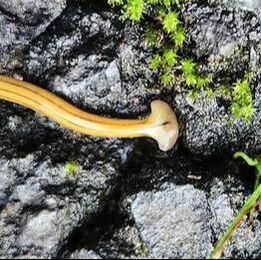 Meet one of the "craziest creatures" University of Maryland Professor Emeritus Mike Raupp has ever seen, the hammerhead worm. Not only is this worm aptly named for the shape of its head, it secretes the same neurotoxin found in puffer fish & has cannibalistic tendencies. https://www.washingtonpost.com/weather/2023/07/22/hammerhead-worms-invasive-poisonous-dc/ https://bugoftheweek.com/blog/2023/7/24/hammer-time-in-the-dmv-hammerhead-worms-bipalium-spp Share this info on the "craziest creature" with friends, family and coworkers via facebook, twitter or other platforms. 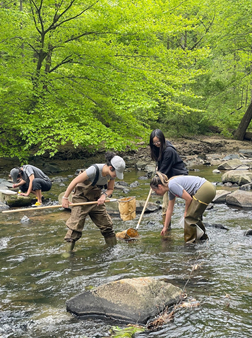 Undergraduates from across disciplines joined Dr. Bill Lamp & Grad Assistant Amanda Rae Brucchieri for an i-series course ripped from the headlines, “BSCI145 The Insect Apocalypse: Real or Imagined”, a new course that encouraged students to learn more about the natural world and interpret scientific information presented to them. Over the semester students applied their knowledge through hands-on experiences in the classroom, lab and even field trips. Earlier in May while some of us were scrolling through photos of the coronation across the pond, Prof Emerita Dr. Barbara Thorne was quoted talking about another monarch - the Termite King. She told The New York Times that "“There are some parallels to our monarchy system for humans.” Read article here>>
The Dept of Entomology is buzzing with excitement as University of Maryland moves closer to bee campus certification. Dr. Hawthorne shares with The Diamondback that obtaining this certification could be beneficial to the well-being of the campus. Not only by enhancing pollinator habitat but by expanding courses on plants, pollinators and their interactions.
https://www.facebook.com/UMDEntomology/posts/pfbid0v6SSeu6pYryeUT6dgT9MMjp6BV57A6jMKVRQM4rfPXJwJUunJq2QL1hzL6r8Hojl https://twitter.com/UMDEntomology/status/1642887187057221635?s=20
It is with mixed emotions that we announce the retirement of Bill Katsereles effective Dec. 31, 2022. Bill has served in public higher education for 42 years with the University of Maryland (even more yrs. if we count his undergrad!). Bill Katsereles received his B.S. degree in accounting in 1980 from the University of Maryland, College Park. After graduating, Bill worked as an Accountant here at the University of Maryland’s Agricultural Experiment Station. A few years in (and a couple of cow purchases later) Bill was promoted to Business Manager at Wye Research & Education Center. In 1993, Bill started in the Department of Entomology where he has been instrumental in the financial administration and development of the department for the past 29 years.
Prof Emeritus Mike Raupp tells the The Weather Channel yes, ants are indeed abundant, reaching every continent except for Antarctica. "They outweigh birds and all wild mammals which is is simply a huge huge amount of mass" Raupp says. & not only are the sheer # and distribution of ants amazing but so is the extraordinary contributions ants make to our planet. Learn more here:
Sorry DMV residents, mosquitoes are predicted to follow us well into the fall season. University of Maryland Prof Emeritus Mike Raupp shares why with the Washington Post.
Quote: Because they’re coldblooded, insect development is very closely tied to ambient temperature, so the warmer it is, the faster they develop,” Raupp said. “Our mosquitoes can have multiple generations every year. So as we move into a warming world — because it gets warm earlier, it stays warm later and it’s generally hotter — we simply have more generations of these mosquitoes every single year. link to article: https://www.washingtonpost.com/dc-md-va/2022/09/25/mosquito-season-washington/ With a bit of help from UMD's Teaching and Learning Innovation Grant, Drs Lamp and Avanesyan show Freshwater Biology students how to use innovative tech to extract DNA from insects and ID species. Read more at MD Today article "From Bugs to Bronze Age, Nearly 300 Courses Get Creative Boost"
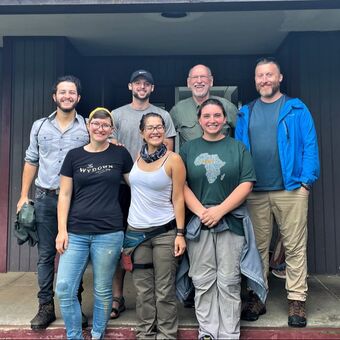 photo credit: Amanda Rae Brucchieri photo credit: Amanda Rae Brucchieri Earlier this month UMD Entomology faculty and students attended EntoQuest, a premiere summer event put on by the ESA’s Eastern Branch. Located in the beautiful mountains outside Front Royal, Virginia the meeting was designed to instill a sense of community, bringing together students, professors and professionals from all over. Events throughout the weekend provided chances to network, learn, explore, and collect with fellow insect enthusiasts. There were opportunities to gain knowledge about aquatic macroinvertebrates, forensic entomology, collection techniques and the pestering lantern fly. Experts shared their knowledge through laid back conversations and casual poster viewing. Amanda Rae Brucchieri, 1st yr grad student in Lamp lab said, “The first ever Eastern Branch Summer EntoQuest was a great way for attendees to enjoy the company and knowledge of others, wrapping up a summer full of data collection and running around perfectly.” See photo of Amanda and other UMD attendees below. & if you are interested in future Eastern Branch events, check out plans for the next meeting in Providence, Rhode Island. https://www.entsoc.org/membership/branches/eastern/meeting
 Photo Credit: NBC4 Photo Credit: NBC4 Hot humid weather with scattered storms make conditions ideal for mosquitoes in the DMV. The Bug Guy, Prof Emeritus Mike Raupp, gives NBC4 tips on how individuals and their communities can fight the bite: - eliminate breeding sites - apply personal protection - and use Gravid Aedes Trap https://www.nbcwashington.com/news/local/how-to-attack-those-pesky-mosquitoes/3068274/ As weather warms lone star ticks are expanding their territory North. Mike Raupp explains in the New York Times more about the tick, including why its bite can lead to a red meat allergy called alpha-gal syndrome. & The Washington Post interviews alum William Gimpel about his experience after developing the syndrome.
Quote from Raupp in NYT: “What we’re now seeing is a wide-open door for ticks to continue expanding their range further northward” Quote from Gimpel in Post: "I developed hives, fainted, my blood pressure dropped, and I told my wife on the way to the ER that I could not see. That has been my most serious reaction." Read NY Times article here>> Read Washington Post article here>> 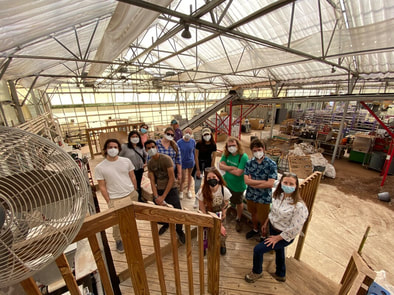 Dr. Shrewsbury guest leads BSCI487 field trip to Bell Nursery. Dr. Shrewsbury guest leads BSCI487 field trip to Bell Nursery. This spring Dr. Hamby kicked off a new course BSCI487, “IPM: science-based decision making for sustainable pest management.” The course explores sustainable pest management in agroecosystems using the integrated pest management (IPM) paradigm. The class of 11 students met each Tuesday and Thursday for lecture, discussion, lab and the occasional field trip. Sankara Ganesh, an undergraduate Biological Sciences major specializing in Ecology and Evolution with a minor in Entomology and Sustainability, describes the course as the perfect overlap between his interests in biology and sustainability. The class taught him about the various consequences of pesticide overuse including risks to human health, environmental contamination, non-target effects on beneficial arthropods, and the development of pesticide resistance. Now that Sankara has taken the course he feels even more enthused about IPM, saying “The key to managing pests while minimizing consequences lies within IPM.” Sankara highly recommends the course, saying “It's the kind of course that students from any major can enjoy and succeed in as long as they make an effort to learn and participate. Also, Dr. Hamby is a very patient and understanding professor who treats all of her students with respect and kindness.” So, if you are interested in learning more about pest management, sustainable food production and the health of our planet, consider registering for BSCI487 when it is offered next. The course is acceptable toward Biological Specialization Areas: ECEV and GENB (Ecology, Behavior & Organismal category) and the Entomology minor. Tune into Bug Talk for honest reflections from scientist Dr. Megan Fritz on starting a family while pursuing a #STEM career. This semester Megan connected with her alma mater Michigan State University, Department of Entomology. While there she chatted with Bug Talk's Zsofia about her path to entomology, her choice to start a family in graduate school, raising children while completing her Ph.D. and the supportive environment that MSU cultivated for female students with children.
Check out Bug Talk's podcast to listen to full Fritz episode: https://www.buzzsprout.com/911479/10162569 Share on facebook and twitter. Dr. Jeff Shultz, quoted in The New York Times commenting on a recent publication out in Molecular Biology and Evolution that suggest rather than occupying their own individual lineage, horseshoe crabs are in the same family as arachnids.
Quote: “Personally, I think it is an interesting finding,” said Jeffrey Shultz, a professor of entomology at the University of Maryland who studies arachnid evolution, “but experience shows that results can change when the same data are analyzed by different workers, when new data are added to the mix or when new insights into genomic evolution come to light.” Link to article here: https://www.nytimes.com/2022/02/18/science/horseshoe-crabs-arachnids.html?action=click&module=Well&pgtype=Homepage§ion=Science How can we keep native bee species alive?
Dr. Nathalie Steinhauer, UMD postdoc and Bee Informed Partnership science coordinator says to Capital News Service MD: Support companies working to reduce the environmental impacts affecting bee populations. & how in the world did bees survive for weeks under volcano ash following the Canary Islands eruption? Nathalie tells the New York Times: That behavior is typical of honeybees, who use propolis, which they produce from substances they collect from plants and buds, to plug tiny gaps in the hive to protect it from rainwater and drafts, said Nathalie Steinhauer, a researcher in the department of entomology at the University of Maryland Still, the fact that the bees on the island managed to spend weeks inside the hive insulating themselves from such oppressive conditions was surprising — and even inspirational, Dr. Steinhauer said. “It is a very empowering story,” she said. “It tells a lot about the resilience of honeybees.
In 2020, Kriztina Christmon, PhD student vanEngelsdorp Lab, won AGNR's AgEnterprise Challenge. Now Kriztina serves as CEO of Repurpose Farm Plastic LLC, a company developing sustainable plastic recycling practices in the field of agriculture. The Office of International Affairs at UMD - Global Maryland features Kriztina's interests in agro-plastic recycling, her experience as a new CEO and the aims of the new business.
https://globalmaryland.umd.edu/offices/global/international-student%E2%80%99s-idea-repurpose-barns-becomes-agro-plastic-recycling-company |
Categories
All
Archives
June 2024
|
Department of Entomology
University of Maryland
4112 Plant Sciences Building
College Park, MD 20742-4454
USA
Telephone: 301.405.3911
Fax: 301.314.9290
University of Maryland
4112 Plant Sciences Building
College Park, MD 20742-4454
USA
Telephone: 301.405.3911
Fax: 301.314.9290




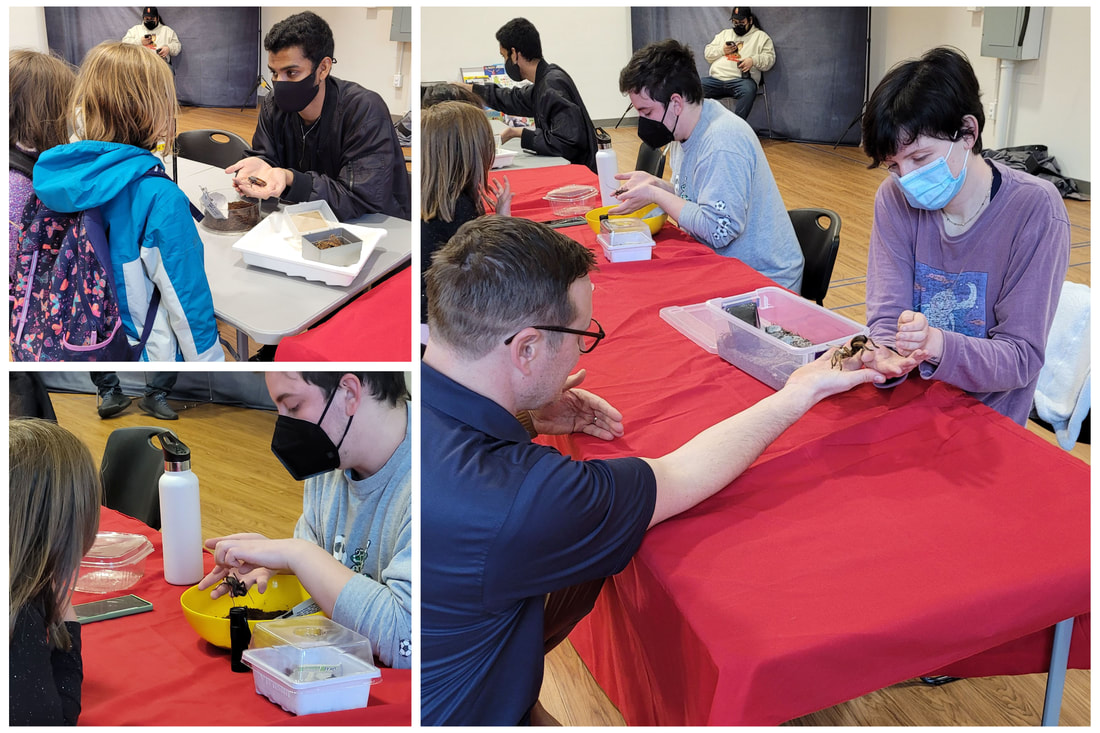

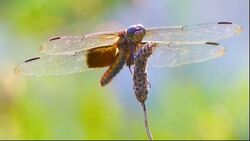
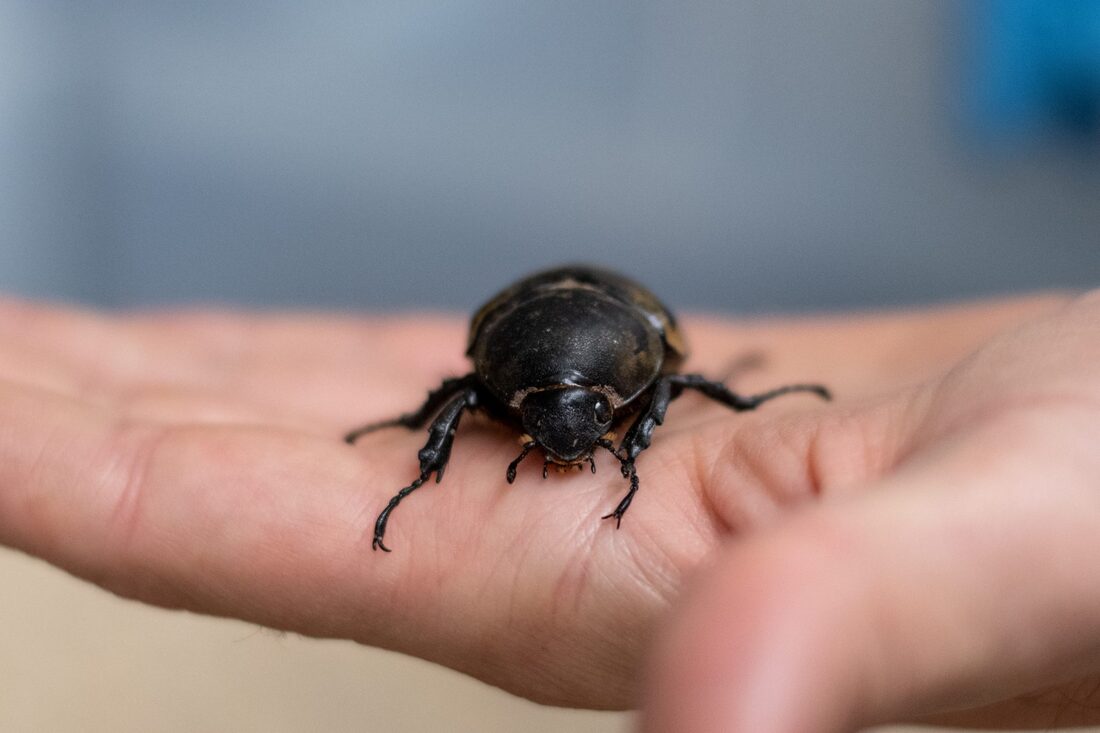
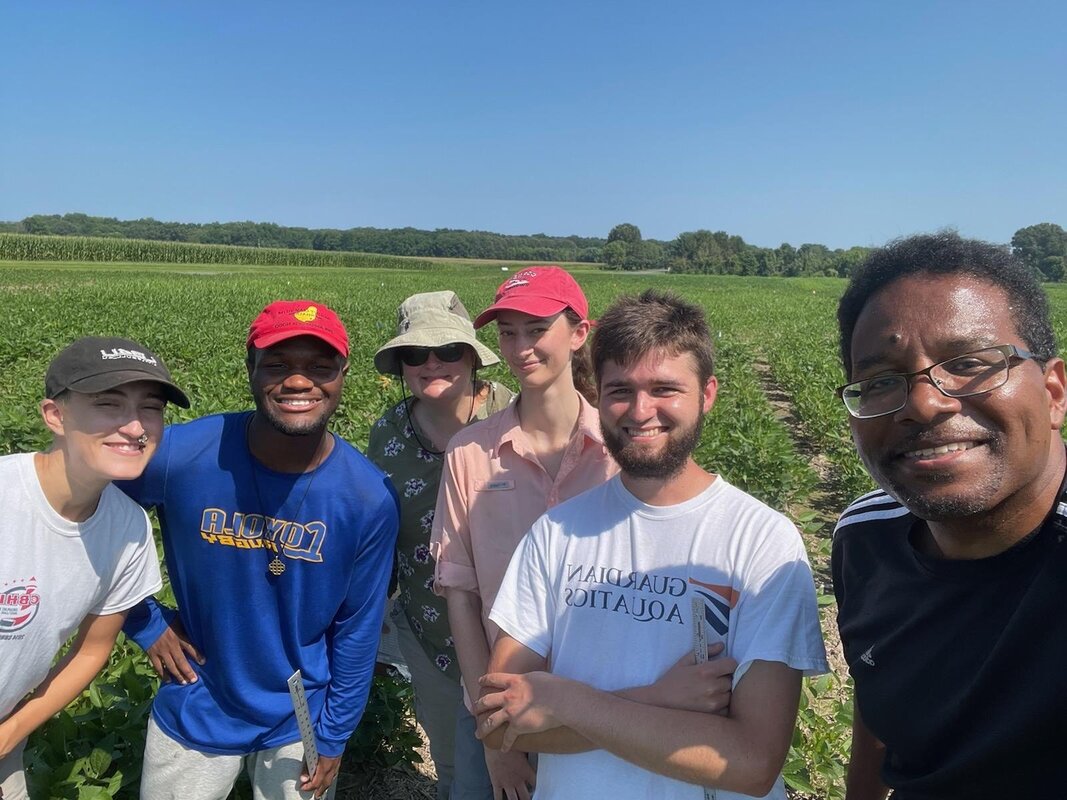
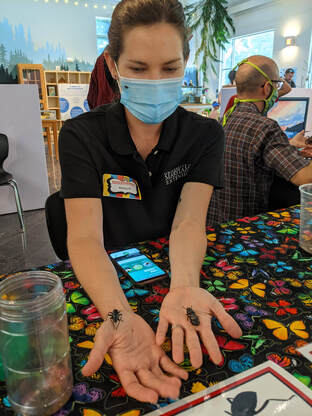
 RSS Feed
RSS Feed




